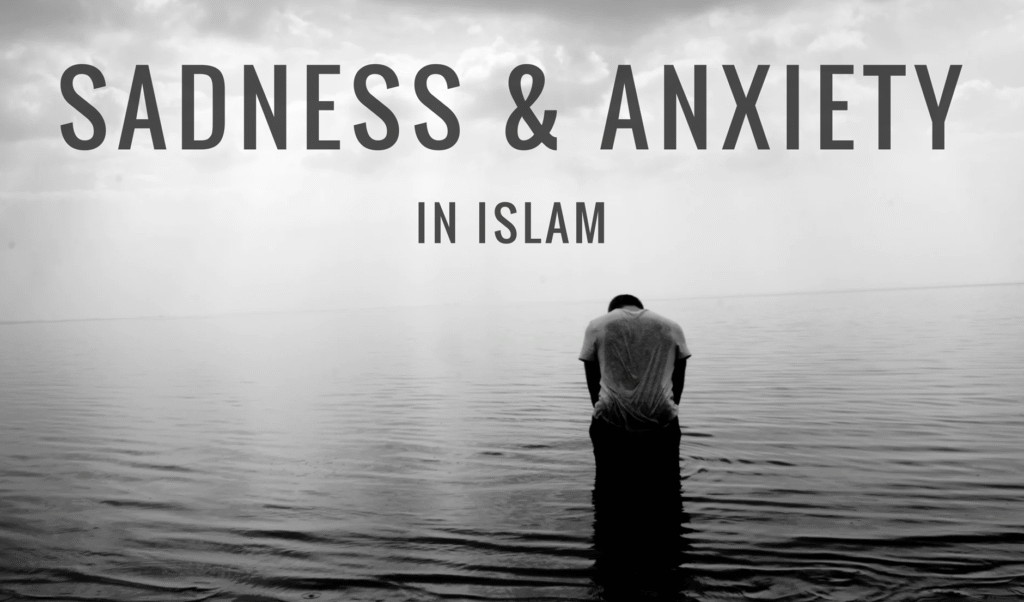
Life is full of ups and downs. At times we feel joy and peace, and at other times we face sadness, fear, and worry. In today’s world, many people struggle with depression and anxiety—feelings of hopelessness, stress, or deep sadness that can weigh heavily on the heart. As Muslims, it’s natural to ask: What does Islam say about these struggles?
Islam does not ignore human emotions. In fact, the Qur’an and Sunnah remind us that feeling sad or anxious is part of life, but Allah has also given us guidance and hope to cope with these challenges.
Islam Recognizes Human Emotions
Depression and anxiety are not signs of weak faith. Even the greatest of people—the prophets—experienced moments of sadness, fear, and distress.
For example:
Prophet Ya‘qub (Jacob, AS) cried so much over the loss of his son Yusuf (AS) that he lost his eyesight. (Surah Yusuf 12:84)
Prophet Musa (Moses, AS) felt fear when facing Pharaoh. (Surah Al-Qasas 28:10)
Even the Prophet Muhammad ﷺ went through grief during the “Year of Sorrow” after losing his beloved wife Khadijah (RA) and his uncle Abu Talib.
This shows that sadness and worry are part of the human experience, not a punishment or shame.
The Qur’an Offers Comfort
Allah acknowledges our pain and reminds us that with hardship comes relief:
“So verily, with hardship, there is ease.”
(Surah Ash-Sharh 94:6)
This verse teaches us that no matter how dark a moment feels, relief is always near. Depression and anxiety may feel overwhelming, but they are never permanent.
Ways Islam Helps Us Cope
Islam provides both spiritual and practical tools to deal with depression and anxiety. Here are some of them:
1. Turning to Allah in Prayer and Du‘a
Prayer connects us directly with Allah. Pouring our hearts out in du‘a brings comfort and hope. The Prophet ﷺ taught us beautiful supplications for sadness, such as:
“O Allah, I seek refuge in You from anxiety and sorrow, from weakness and laziness, from miserliness and cowardice, from the burden of debts and from being overpowered by men.”
(Sunan Abu Dawood)
2. Reading the Qur’an for Healing
The Qur’an is a source of light and healing for the heart. Reciting and reflecting on verses reminds us that Allah is near, that He loves His servants, and that no soul is burdened beyond what it can bear.
3. Practicing Patience (Sabr)
Islam places great value on patience during difficult times. Patience is not just about waiting but about trusting Allah’s wisdom and timing. Through patience, believers earn immense reward.
4. Seeking Support and Community
The Prophet ﷺ said: “The believer to the believer is like a building whose different parts enforce each other.” (Sahih al-Bukhari, Sahih Muslim)
This reminds us to support each other, check on one another, and not suffer alone. Talking to family, friends, or a trusted scholar can bring comfort.
5. Taking Care of the Body and Mind
Islam encourages balance. Eating well, sleeping properly, exercising, and spending time in halal recreation all help in managing stress. Even seeking medical help or therapy is completely in line with Islamic teachings. Islam encourages Muslims to seek cures for every illness, including emotional ones.
Depression and Anxiety Are Tests, Not Punishments
It’s important to remember that going through depression or anxiety does not mean Allah is angry with you. Instead, these struggles can be tests that purify our souls and bring us closer to Him.
The Prophet ﷺ said:
“No fatigue, nor disease, nor sorrow, nor sadness, nor hurt, nor distress befalls a Muslim—even if it were the prick he receives from a thorn—but that Allah expiates some of his sins for that.”
(Sahih al-Bukhari, Sahih Muslim)
Every moment of pain can raise our status with Allah if we turn to Him with patience and trust.
Conclusion
Islam acknowledges that depression and anxiety are real challenges. Our beloved prophets went through sadness and fear, and Allah gave us tools—prayer, du‘a, Qur’an, patience, and community—to help us cope. At the same time, Islam teaches us that seeking help and taking care of our mental health is part of faith.
So if you are struggling, know that you are not alone. Allah is with you, He loves you, and He promises that after hardship will come ease. Hold on to hope, make du‘a, and take steps—both spiritual and practical—to heal, insha’Allah.
Learn and Grow with Islamic Guidance
If you wish to explore more about how Islam guides us through life’s challenges, including faith, family, and daily struggles, check out Online Islamic Institute. They offer premium Islamic courses for all ages, helping you connect with the Qur’an and Sunnah in a clear and practical way.
Explore their courses here: https://onlineislamicinstitute.org/ – insha’Allah, you will find knowledge that brings peace to both your mind and heart.
JazakAllahu khair for reading. May Allah grant us strength, patience, and peace of heart. Wa Assalamu Alaikum wa Rahmatullahi wa Barakatuh.